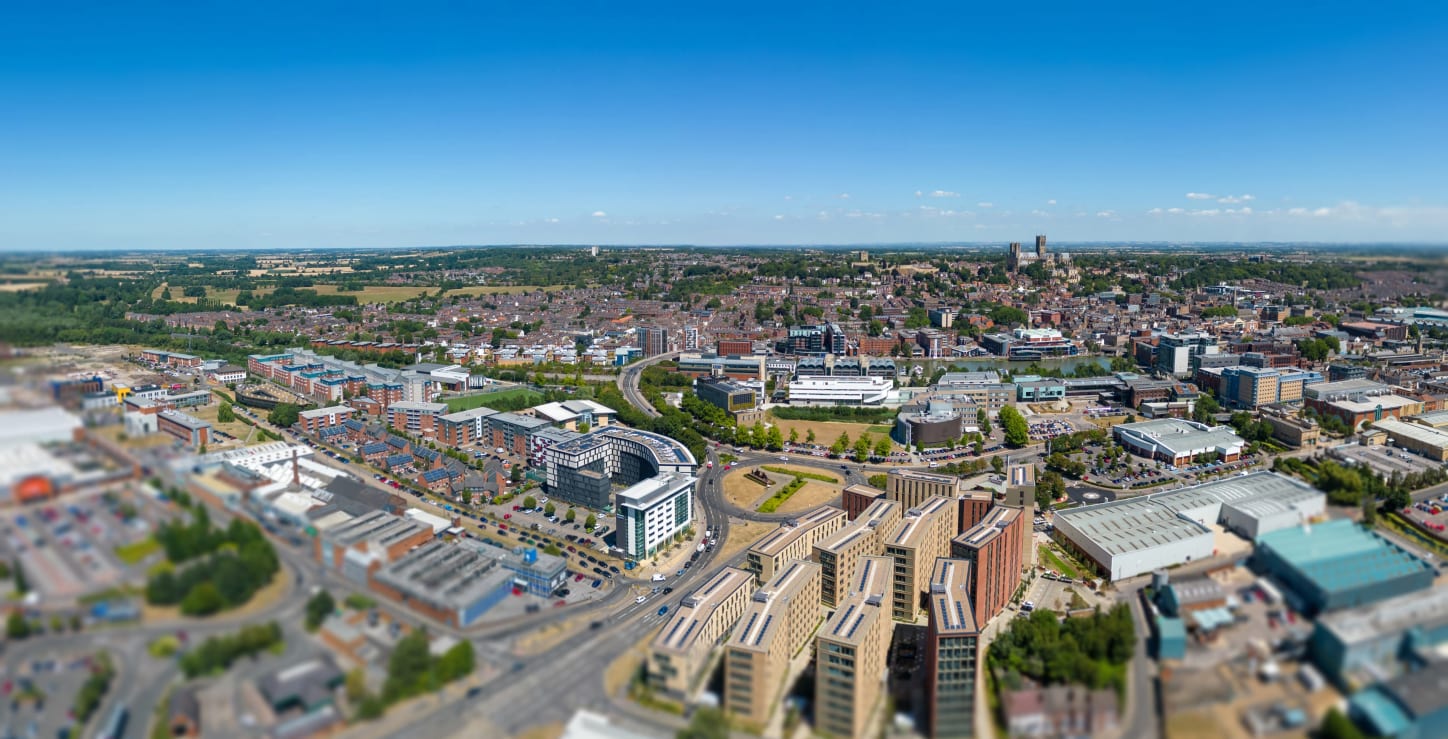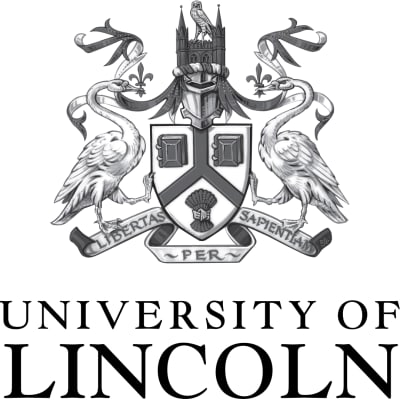
University of Lincoln
BA (Hons) Politics and Social Policy
Lincoln, United Kingdom
DURATION
3 Years
LANGUAGES
English
PACE
Full time, Part time
APPLICATION DEADLINE
Request application deadline *
EARLIEST START DATE
Request earliest startdate
TUITION FEES
Request tuition fees

STUDY FORMAT
On-Campus
* late applications will be considered if suitable vacancies remain
Discover Lincoln Wherever You Are in the World
Our webinars, subject masterclasses, question and answer sessions, and student panel talks are a great way to discover what it is like to live and study at the University of Lincoln.
Introduction
Domestic and global politics are at the heart of society, and these courses provide an insight into how political institutions respond to the needs of a changing society and tackle some of its most pressing problems.
BA (Hons) Politics and Social Policy at Lincoln combines a detailed exploration of political ideas, institutions, and processes, with an in-depth analysis of how policies are developed and implemented to deal with the world's social problems.
As well as addressing big questions about concepts such as democracy and equality, the course provides an opportunity to examine and experience the policy responses to social problems affecting our communities.
The programme includes a strong emphasis on skills development. Students can begin to collect and analyse data from day one, providing the chance to develop transferable research and analytical skills.
Teaching is informed by the research expertise of academic staff from the School of Social and Political Sciences, who contribute regularly to national policy debates in both fields and have a particular interest in the politics of welfare.
"This information was correct at the time of publishing (July 2023)"
Admissions
Curriculum
How You Study
This programme includes a strong emphasis on skills development, which runs across all three years. In the first year, the course aims to provide a broad introduction to both subjects with core modules on British politics and social policy. Students can begin to collect and analyse data from day one, providing the chance to develop transferable research and analytical skills.
In the second and third years, core modules encompass British politics, political theory, new forms of political participation, welfare policy, and the policy process. Students may tailor their degree programme through a range of optional modules on subjects drawn from politics and social policy, as well as related disciplines such as criminology, international relations, and sociology.
This degree involves both directed and independent learning. Each module is usually delivered through a combination of weekly lectures and associated seminars and workshops. The seminars aim to provide an opportunity for students to discuss issues raised in the lecture and engage in critical reflection on the issues being studied. Students also have the opportunity to meet with module staff in tutorial sessions. As well as directed study, students are expected to undertake independent learning using traditional library resources as well as a wide range of electronic resources.
First Year
- Applying Research (Social Sciences) (Core)
- Key Social Science Concepts (Core)
- Social Issues and Social Justice (Core)
- Who Runs Britain? Power, Politics and Beyond (Core)
Second Year
- Comparative Politics and Policy (Core)
- Debating Welfare States (Core)
- Political Parties (Core)
- (Re)Reading the Sociological Canon I (Option)†
- (Re)reading the Sociological Canon II (Option)†
- Applied Politics (Option)†
- Challenges of European Politics (Option)†
- Conceptualising Sex Work (Option)†
- Crime in Literature (Option)†
- Criminology in the Professions (Option)†
- Diversity, Difference and Exclusion (Option)†
- Foreign Policy Analysis (Option)†
- Governing America (Option)†
- Ideology into Practice (Option)†
- Intelligence and Security Law (Option)†
- Internationalising Cultural Studies (Option)†
- Model United Nations (Option)†
- Nations and Nationalism (Option)†
- Policing Crime and Deviance (Option)†
- Psychology in the Criminal Justice Process (Option)†
- Researching in Social Science (Option)†
- Researching Politics and International Relations (Option)†
- Social Engagement (Option)†
- Sociology of Education (Option)†
- Strategic Studies (Option)†
- The Politics of Sex and Sexuality (Option)†
- The Vigilant State: intelligence and national security (Option)†
- Thinking International Relations (Option)†
- Thinking Politics (Option)†
- Transnational Security Studies (Option)†
- Understanding Domestic Abuse (Option)†
- Understanding the City (Option)†
- Understanding the European Union (Option)†
- Welfare Policy and Work (Option)†
- Work and Society (Option)†
- Youth Justice (Option)†
- Youth, Culture and Resistance (Option)†
Third Year
- Analysing the Policy Process (Core)
- Global Civil Society (Core)
- Understanding the Policy Process (Core)
- Body Politics (Option)†
- Care or control? Welfare institutions in Britain before the welfare state (Option)†
- Children, Families and the State (Option)†
- Counselling and Guidance Skills (Option)†
- Counter-Terrorism Studies (Option)†
- Crimes of the Powerful (Option)†
- Emotions in Everyday Social Life (Option)†
- Experiencing Prison (Option)†
- Family Law (Option)†
- Gender and Violence (Option)†
- Global Governance (Option)†
- Human Rights (Social Sciences) (Option)†
- Independent Study (Politics and International Relations) (Option)†
- Independent Study (Option)†
- International Law (Option)†
- International Relations of the Middle East (Option)†
- Multiculturalism and Britishness (Option)†
- Parliamentary Studies (Option)†
- Penology and Penal Policy (Option)†
- Police Studies (Option)†
- Race and Racism (Option)†
- Terrorism and Extremism in the United Kingdom (Option)†
- The Colonial Present (Option)†
- The Developing World (Option)†
- The Politics of Energy (Option)†
- The Politics of Global Health (Option)†
- The Politics of Masculinity (Option)†
- The Politics of Migration in the UK and Western Europe (Option)†
- War Crimes and Genocide (Option)†
- Working in Education and Children's Services (Option)†
- Working With People in Adult Social Care Settings (Option)†
† Some courses may offer optional modules. The availability of optional modules may vary from year to year and will be subject to minimum student numbers being achieved. This means that the availability of specific optional modules cannot be guaranteed. Optional module selection may also be affected by staff availability.
How You Are Assessed
The assessment strategy adopted within the course is designed to test students' knowledge, skills and abilities, and aims to prepare them for the demands of work. This course has been developed to provide students with an in-depth subject knowledge and a range of transferable skills.
The course aims to develop written communication skills through essays and examinations, oral communication skills through presentations, literature searching and review through essays, examinations and presentations, and computer literacy skills.
In the final year students are expected to combine their study skills to undertake their own chosen area of study in preparation of an Independent Study.
Assessment types vary throughout each year of study, however, students can expect a range of assessment methods including coursework, practical exams, and written exams.
The University of Lincoln's policy is to ensure that staff return assessments to students promptly.
Gallery
Program Outcome
How You Study
This programe includes a strong emphasis on skills development, which runs across all three years. In the first year, the course aims to provide a broad introduction to both subjects with core modules on British politics and social policy. Students can begin to collect and analyse data from day one, providing the chance to develop transferable research and analytical skills.
In the second and third years, core modules encompass British politics, political theory, new forms of political participation, welfare policy, and the policy process. Students may tailor their degree programe through a range of optional modules on subjects drawn from politics and social policy, as well as related disciplines such as criminology, international relations, and sociology.
This degree involves both directed and independent learning. Each module is usually delivered through a combination of weekly lectures and associated seminars and workshops. The seminars aim to provide an opportunity for students to discuss issues raised in the lecture and engage in critical reflection on the issues being studied. Students also have the opportunity to meet with module staff in tutorial sessions. As well as directed study, students are expected to undertake independent learning using traditional library resources as well as a wide range of electronic resources.
Scholarships and Funding
For eligible undergraduate students going to university for the first time, scholarships and bursaries are available to help cover costs. The University of Lincoln offers a variety of merit-based and subject-specific bursaries and scholarships.
Several scholarship options are available. Please check the university website for more information.
Program Tuition Fee
Career Opportunities
Graduates have gone on to positions across the public sector, including central and local government, policy development within parliament, lobbying or research with think tanks, and the charity and not-for-profit sectors. A number have continued on to postgraduate study or professional training.
